About the Host
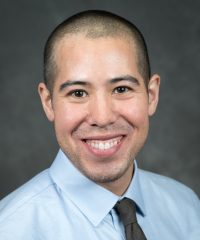
Dr. Nathaniel Chin is the creator and host of Dementia Matters. He is a geriatrician, memory clinic doctor, and medical director for the Wisconsin Alzheimer's Disease Research Center. His father's diagnosis with early onset Alzheimer’s disease inspired him to pursue a career as a geriatrician and scientist focused on dementia prevention, especially in regard to Alzheimer's disease.
Dementia Matters is a podcast about Alzheimer’s disease and other causes of dementia. Creator and host Dr. Nathaniel Chin interviews leading scientists and caregiving experts to bring listeners the latest in Alzheimer's disease news, research and caregiver resources.
Three Ways to Listen
You can listen to episodes through our website or subscribe to Dementia Matters through ApplePodcasts, Spotify, Podbean or wherever you get your podcasts. You can hear Dementia Matters on Fridays at 4 p.m. (CT) and again at 10 p.m. (CT) during the "Science Friday" segment on WMUU Radio, 102.9 FM in Madison, and streaming online.
Contact Us
Email your questions and episode suggestions to dementiamatters@medicine.wisc.edu.
Audio Editors: Eli Gadbury and Alexia Spevacek
Executive Producer: Caoilfhinn Rauwerdink
Producer: Amy Lambright Murphy
Make an Impact
Like what you’re hearing and learning? Make an impact when you make a tax-deductible gift to the Dementia Matters fund of the UW Initiative to End Alzheimer’s.
Recent Episodes
Dr. Chin talks with our guest about safety tips for aging drivers, caregiver considerations, and information on classes offered through AARP's Driver Safety Program. Guest: Neil McCallum, Wisconsin State Coordinator of AARP’s Driver Safety Program
Learn how to increase positivity, nurture mindfullness, and combat loneliness to improve overall health and wellness. Guest: Dr. Shilagh A. Mirgain, PhD, Distinguished Psychologist with the University of Wisconsin Department of Orthopedics and Rehabilitation/UW Health
Missteps with money management is an early warning sign of dementia, and aging customers are often targets of financial scams and abuse. This week's guest spearheaded dementia friendly training across all branches of the bank she works for in hopes of supporting and protecting aging customers. In this podcast episode, learn about River Valley Bank's Dementia Friendly program, the type of training employees completed, and how bank customers and communities reacted to the initiative. Guest: Rhonda Lewis, River Valley Bank
Our guest discusses a wide range of pharmacological topics of interest to the aging adult and caregivers, from medication reconciliation to sleep aids to addressing how some drugs affect memory and thinking skills. Guest: Robert Breslow, pharmacist, associate professor at the University of Wisconsin School of Pharmacy
Former Badger Men’s Hockey announcer and “The Golf Affect Radio Show” host Paul Braun was a caregiver for his late wife, Karen, who had early-onset Alzheimer’s disease. Paul’s experiences motivated him to become an advocate for people with Alzheimer’s disease and raise awareness and money for research and caregiver support. Paul was instrumental in developing the American Family Insurance Championship golf tournament Birdies for Health campaign, which raises money for five health causes at UW Health. Guest: Paul Braun, radio and sports broadcasting personality
Dr. Carl Hill joins the podcast to discuss research taking place around the country that works to improve health care and access for elders in diverse racial, ethnic and socioeconomic groups. Guest: Carl Hill, PhD, MPH, Director, Office of Special Populations, National Institute on Aging
Dr. Barbara Bowers is an expert on improving care for older adults and people with dementia. Her work focuses on improving work life quality for formal caregivers, and developing tools to guide and support informal caregivers. Guest: Barbara Bowers, PhD, RN, University of Wisconsin-Madison School of NursingGuest: Dr. Barbara Bowers, PHD, University of Wisconsin-Madison School of Nursing.
Our guest is Dr. Tia Powell, author of the new book Dementia Reimagined: Building a Life of Joy and Dignity from Beginning to End. Dr. Powell wants more people to live safe and happy after a diagnosis of dementia, and encourages them and their caregivers to focus on living, instead of dying, throughout the course of the disease. Dr. Powell discusses proactive preparation, planning for physical and financial safety, and learning how to incorporate joy into a changing life. Guest: Tia Powell, PhD, director of the Montefiore Einstein Center for Bioethics and professor of epidemiology and psychiatry at Albert Einstein College of Medicine in New York
Synapses are points in the brain where two brain cells connect and communicate. Dr. Barbara Bendlin discusses her new research into synaptic change, its relationship to memory loss, and how her first-in-the-field research might one day lead to a new tool for early diagnosis of Alzheimer's disease. Guest: Barbara Bendlin, PhD, Wisconsin Alzheimer's Disease Research Center
Dr. Rachel Whitmer details how social determinants of health can lead to an elevated risk for dementia and shares what she has learned about modifiable risk factors and how they affect brain health. Guest: Dr. Rachel Whitmer, PhD, UC Davis Department of Public Health Sciences and Chief of the Division of Epidemiology
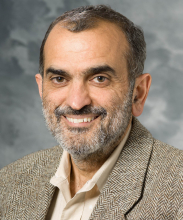
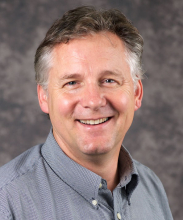
This week, we speak with Dr. Shahriar Salamat and Mr. Jay Fruehling to discuss brain donation research and how it helps give the most accurate diagnoses. Guests: Dr. Shahriar Salamat, professor in the Department of Pathology, University of Wisconsin School of Medicine and Public Health and Mr. Jay Fruehling, Wisconsin Brain Bank Program Manager and community educator on brain donations at the Wisconsin Alzheimer's Disease Research Center
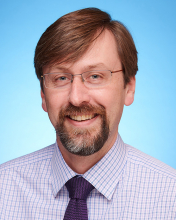
This week, we continue our conversation with Dr. Art Walaszek discussing the behavioral and psychological symptoms of dementia (BPSD). In this episode, he speaks about hallucinations and delusions and what caregivers can do to help. Guest: Dr. Art Walaszek, Geriatric Psychiatrist, University of Wisconsin School of Medicine and Public Health

Dr. Art Walaszek joins us for a two-part series discussing the mental health and behavioral changes family members and caregivers may see in people with dementia. In this first part, he delves into the relationship between depression and dementia, as well as tips and advice for caregivers. Guest: Dr. Art Walaszek, Geriatric Psychiatrist, University of Wisconsin School of Medicine and Public Health
Age is the greatest risk factor for Alzheimer’s disease, but who and when it strikes is unpredictable. Recent research can help us understand how brain changes, genetics, gender, and environment and lifestyle factors affect risk for Alzheimer’s disease. Guest: Elizabeth Mormino, PhD, assistant professor of neurology at Stanford University.
On this week’s episode, Dr. Kimberly Mueller helps explain connected language and how studying conversations can help detect early signs of cognitive impairment. Guest: Dr. Kimberly Mueller, Assistant Professor Department of Communications Sciences and Disorders, University of Wisconsin-Madison
The holidays are a joyous time for many, however it can be quite stressful to caregivers of a person with dementia. Geriatrician Dr. Alexis Eastman discusses the most important tips and safety precautions for dementia caregivers this holiday season.
Guest: Dr. Alexis Eastman, Division of Geriatrics and Gerontology, University of Wisconsin School of Medicine and Public Health
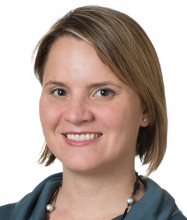
SuperAgers are people over age 80 who have the memory and thinking abilities of someone in their 50s. This week, Dr. Emily Rogalski discusses the science of SuperAging and how examining SuperAgers’ brains can help us learn about Alzheimer’s disease and dementia.
Guest: Emily Rogalski, PhD, Associate Professor of Psychiatry and Behavioral Sciences at Northwestern University, Feinberg School of Medicine, Associate Director at Mesulam Cognitive Neurology and Alzheimer's Disease Center in Chicago
This week, we have a very special episode featuring former Governor of Wisconsin, Martin Schreiber. Governor Schreiber has been a widely outspoken advocate for awareness of Alzheimer's disease and dementia. He discusses the many beautiful and difficult moments of being a caregiver for his wife, who was diagnosed with Alzheimer’s disease more than a decade ago.
Guest: Martin Schreiber, Former Governor of Wisconsin (1977-1979), Former Lt. Governor of Wisconsin (1971-1977)
Preventive cardiologist Dr. Heather Johnson joins us this week to discuss how keeping a healthy cardiovascular system can reduce chances of developing dementia. She also discusses her MyHEART study, which aims to help young adults live heart-healthy lives.
Guest: Dr. Heather Johnson, cardiologist with special interest in preventive cardiology, University of Wisconsin School of Medicine and Public Health
Rarely are the steps to prevent Alzheimer's disease and dementia discussed thoroughly. On this week's episode, Dr. William Shankle, a neurologist specialized in the diagnosis, treatment and management of Alzheimer’s disease, discusses how management of lifestyle and other health conditions can reduce the rate of accumulation of Alzheimer’s disease in the brain.
Guest: Dr. William Shankle, Medical Director, Shankle Clinic, Newport Beach, California.
The quest for both patient and caregiver resources in your own community can be difficult. Bonnie Nuttkinson of the Alzheimer’s Association tells us the many different free resources for dementia patients and their caregivers.
Guest: Bonnie Nuttkinson, Program and Advocacy Manager, Alzheimer's Association South Central Wisconsin Chapter
A sleep scientist explains the importance of sleep to your brain, shares what the scientific community knows about the connections between sleep apnea and brain health, and offers tips for healthy sleep. Guest: Kate Sprecher, postdoctoral research associate, University of Colorado at Boulder
Guest: Suzanne Bottum-Jones, Registered Nurse, Children’s Author, Behavioral Consultant
After more than 15 years of working with behavioral management strategies and symptoms associated with dementia, our guest has turned her focus to educating families and caregivers who are affected by this disease. She provides tips that every caregiver should know and sheds light on why it was important for her to write a children’s book that addresses Alzheimer’s disease.




